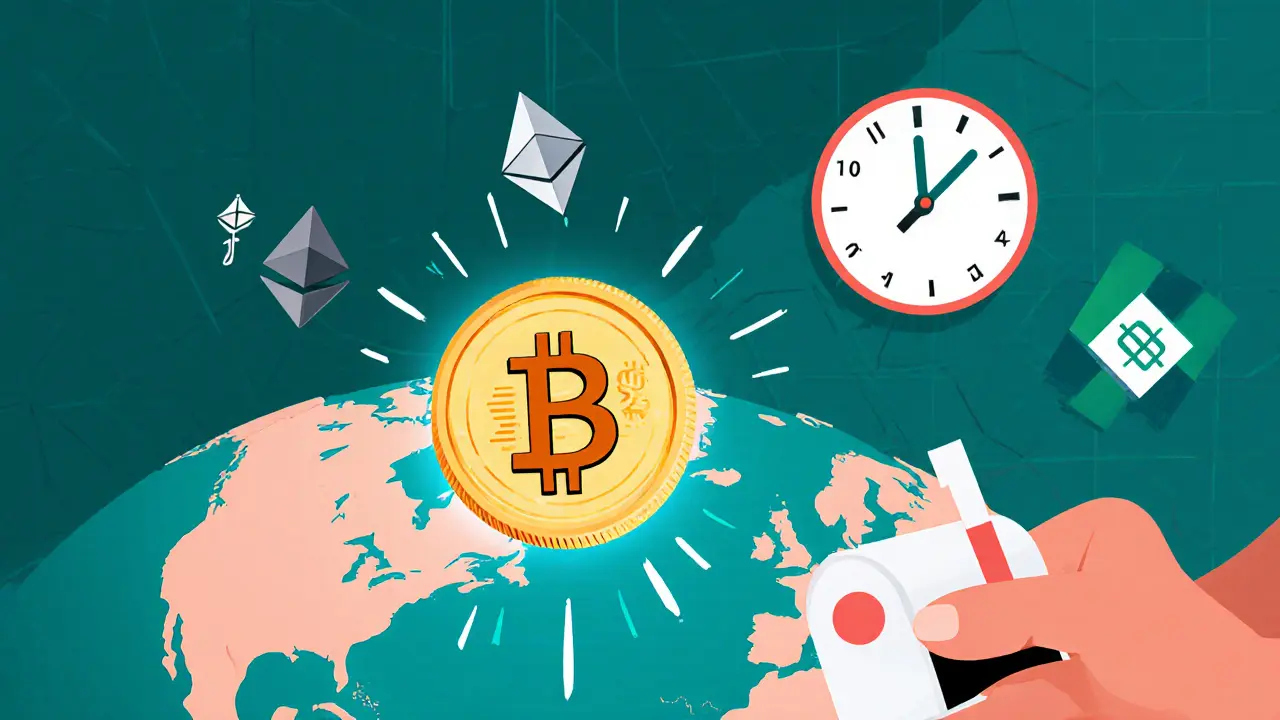Traditional Banking Alternatives: Crypto, DeFi, and Real-World Solutions
When you think of traditional banking alternatives, financial systems that operate outside government-backed banks and centralized institutions. Also known as decentralized finance, it's not just about replacing banks—it's about giving you direct control over your money, without middlemen. People in countries like Pakistan, Cuba, and Thailand aren’t waiting for banks to catch up. They’re using crypto to send remittances, protect savings from inflation, and earn interest without a branch visit.
One major shift is DeFi, a system where financial services like lending, borrowing, and trading happen on blockchains without banks. For example, Venus BTC (vBTC) lets Bitcoin holders earn yield by locking their BTC into smart contracts on Binance Smart Chain. Unlike banks that pay 0.01% interest, DeFi protocols can offer 5% to 15%—and you never need to prove your income. Then there’s digital wallets, secure apps that store crypto and let you send money globally in seconds. Platforms like SATOS in the Netherlands or PancakeSwap on Base show how regulated and decentralized options now coexist, giving users choice based on safety or speed. You don’t need a credit score. You don’t need to wait three days for a wire. You just need a phone and a private key.
But not all alternatives are built the same. Some, like the failed Seamans Token (SEAT) or the dead Landboard (LAND), were just hype with no real use. The real winners—like Secret (SCRT) for private transactions or Mantle Staked Ether (METH) for earning ETH rewards without locking coins—solve actual problems. And when governments restrict banking, as in India or Pakistan, people turn to compliant exchanges like FIU-IND registered platforms or privacy-focused tools like Monsoon Finance’s MCASH, which rewards usage, not just speculation.
Smart contracts are changing real estate, crypto taxes are being clarified in Thailand, and even maritime trade projects are trying to go on-chain. But the core idea stays the same: your money shouldn’t need permission to move. Whether you’re sending cash to family abroad, avoiding inflation, or just tired of bank fees, the tools are here. Below, you’ll find honest reviews of exchanges, broken-down token projects, and real stories from people who left traditional banking behind—not because they hated banks, but because they found something better.
Cross-border crypto payment alternatives to traditional banking: Faster, cheaper, and how they work in 2025
Cross-border crypto payments using stablecoins now settle in minutes for under 1% in fees, beating traditional banking's 6.4% costs and multi-day delays. Here's how they work in 2025 and who's using them.
Details +